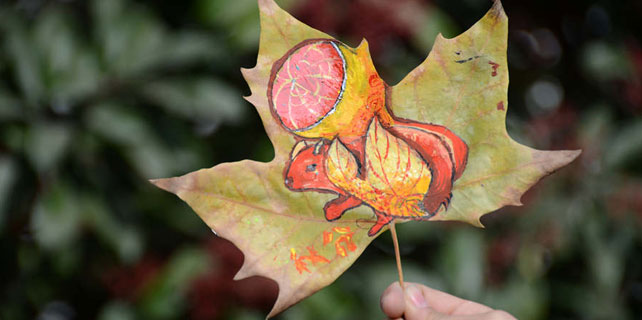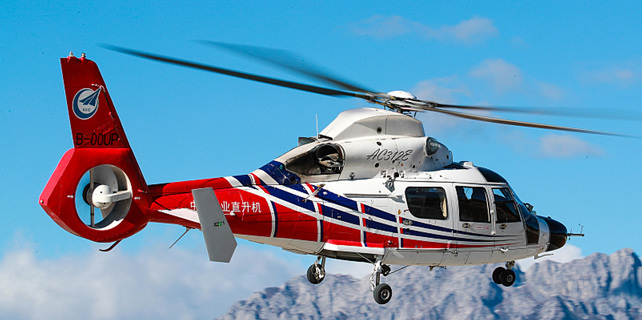Altay's wintertime play
A Xinjiang prefecture's cold-season allure is heating up. Yang Feiyue reports.
Altay has long been beloved as a summer getaway, but it has increasingly been conjuring up charm as a winter wonderland.
The prefecture in the north of China's Xinjiang Uygur autonomous region is coated with "quality snow" for up to 180 days a year, Altay's deputy Party secretary Li Bin says.
"Its skiing conditions may well be on par with the Swiss Alps."
Some archeologists believe the area was among the first places where humans discovered skiing. Paleolithic rock paintings of people using skis were discovered in 2005.
Primitive larch forests ring Kanas Lake. Surrounding aspens and birches are sheathed in rime.
The surrounding snow can average up to 2 meters deep in winter.
Altay's cool summertime weather - averaging between 0.2 C and 4 C - has long made it an ideal summer getaway.
Visitors explore its glacial rivers, forests and marshes when its temperatures peak.
And increasingly now as they plummet, too.
The prefecture is dotted with geological and forest parks.
And it hosts cultural appeal.
Half of Altay's population is ethnic Kazak.
"Many visitors come to experience local history and health treatments," Li says.
They watch Kazak hunters use golden eagles to catch rabbits.
The prefecture received nearly 15 million visits in the first nine months of this year, a nearly 50 percent increase over the same period last year. Tourism income also increased by about 50 percent to exceed 9.3 billion yuan ($1.4 billion) during the period.
Visitors aged 19 to 45 are a major demographic, Li says.
Women account for more than half of travelers.
Altay has launched winter tours featuring such activities as helicopter rides, fishing and folk sports.
The Altay Mountain Wild Snow Park lies about 20 kilometers from the city's downtown, and offers skiing and a helicopter experience that hovers over a 2,800-meter-high peak. It also offers wilderness hikes and horsedrawn sleigh rides.
Jiangjunshan Ski Resort - just over 1 km outside of town - offers 18 trails of various degrees of difficulty spanning 20 km in total. The International Ski Federation has certified some of its slalom trails.
Visitors can stay in Tuva people's traditional houses in Kanas.
Locals still use traditional skis made from pine and fur, the essential style of which may date back to 12,000 years. They still hold annual competitions using this footwear to race across snow.
Altay's Baihaba was named among China's most beautiful towns for its pristine environment and ancient traditions.
Another major draw in the prefecture is Fuhai county's Ulungur Lake.
The body of water is a major fishing site. Its history of ice fishing has morphed into a draw for travelers. Visitors can witness the worship rituals and fish auctions.
Burqin county draws visitors with its snowy swath of the Gobi Desert, its villages and its castle.
That's not to mention ice sculptures illuminated with polychromatic lights. A winter arts festival features performances with distinctive elements ranging from standup comics to dancing.
Hemu town is dotted with wooden cabins with smoke curling from chimneys. The settlement hosts an international ice and snow festival, featuring 50 events.
Altay has invested nearly 1 billion yuan to develop 42 tourism projects this year.
It is constructing a new airport terminal that will accommodate 800,000 passengers annually by 2018.
Flights to Shaanxi province's Xi'an and Tianjin from Altay's airport opened last month.
Plans call for offering direct flights to Beijing, Shanghai, Guangdong province's Guangzhou, Henan province's Zhengzhou, Sichuan province's Chengdu and Heilongjiang province's Harbin within two years.
And it will soon launch international flights to Kazakhstan, Russia and Mongolia.
The government recommends two winter routes.
The first runs from Burqin to Chonghuer to Hemu to Kanas to Fuhai to Altay Mountain Wild Snow Park.
The second runs from downtown Altay to Ulungur Lake to Burqin to Hemu to Kanas to Baihaba to Baisha Lake.
Altay may be a cold place to visit in winter but that's part of its appeal.
Contact the writer at yangfeiyue@chinadaily.com.cn
(China Daily 11/27/2017 page22)


















